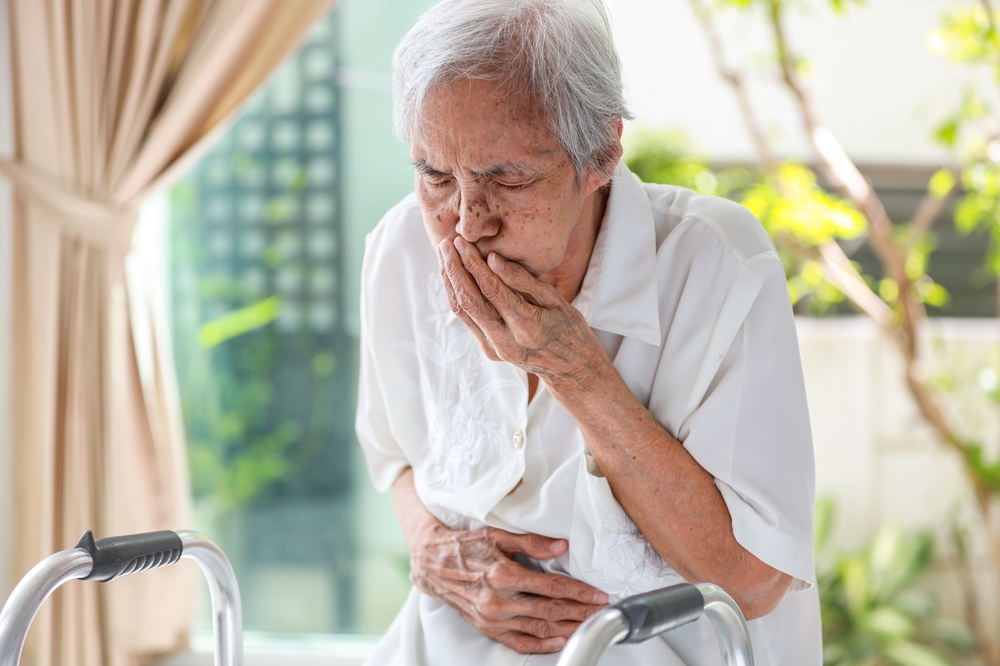Breathing Problems in Old Age: What Causes Shortness of Breath in the Elderly?
Category:

Breathing problems in elderly can be the result of several factors. This can include chest discomfort, wheezing, coughing, or shortness of breath. In this post, we will review what you need to know about elderly breathing trouble. This will include information about the causes, when to get help, and how Caregivers can assist.
What Causes Shortness of Breath in the Elderly?
Breathing problems in old age can be the result of numerous factors. Some elderly breathing problems include:
- Changes related to age. Respiratory health can decline as one ages. This can include reduced cough reflex and clearance mechanisms, weakening respiratory muscles, decreased lung function and elasticity, altered chest wall mobility, changes in respiratory control, increased airway resistance, and risk of chronic lung diseases.
- Chronic medical conditions. This can include Chronic Obstructive Pulmonary Disease (COPD), which can include chronic bronchitis, asthma, and emphysema. It can also include pulmonary hypertension, cancer, chronic cough, and heart failure. Neurological disorders, such as strokes, can also cause breathing problems.
- Respiratory infections. As we age, there is an increased risk for certain infections. This can include pneumonia, which can inflame the air sacs in one or both lungs, or aspiration pneumonia, which occurs when food and other substances get inhaled into the lungs. Additionally, older adults are more susceptible to influenza, COVID-19, legionnaires’ disease, sinus problems, and the common cold and flu.
- Lifestyle and environmental factors. This can include air pollution, allergens, cold air, high altitudes, humidity levels, weather changes, indoor air quality, and tobacco smoke.
When Should You Get Help?
Overall, one should get help for problems, such as noisy breathing in elderly and rapid breathing while sleeping in elderly, when the following issues occur:
- Congestive heart failure
- Coughing up blood
- Sudden chest pain or onset of shortness of breath
- A high fever with or without a cough
- Changes in breathing while sleeping
- Difficulties swallowing
- Increased shortness of breath during activity
Download Our FREE Path to Care Guide
How Can One Overcome Shortness of Breath as an Elder?
To overcome shortness of breath, Caregivers can:
- Encourage drinking extra fluids. Drinking water or juices will help bring up phlegm or mucus to help clear the lungs out.
- Be aware of lung infections. These must be taken seriously as they cause serious complications or send someone to the hospital.
- Ensure prescribed medicines are used correctly. This ensures the patient gets the medicine as directed.
- Avoid over-the-counter cough medicines. These can dry out the lungs, but it is OK to use them if directed to do so by a doctor.
- Ensure the patient uses bronchodilators and inhalers correctly. Caregivers should make sure they know how to determine when medicine is running out. A healthcare provider can provide assistance on this.
- Check expiration dates of bronchodilators and inhalers. Do not use them if expired.
- Ask the health care providers about other ways to take breathing medicines. Other options include inhaling a mist through a machine with a small motor.
- Learn how to monitor and assist in the use of oxygen from a health care provider. They should provide you with information such as how to use the equipment, when to use it, and who to call if there is a problem.
To learn more about our home care services, contact our caregiving team today at 1-800-GRISWOLD or find a Caregiver near you.
Subscribe
Date: 2024-06-05
Category:


